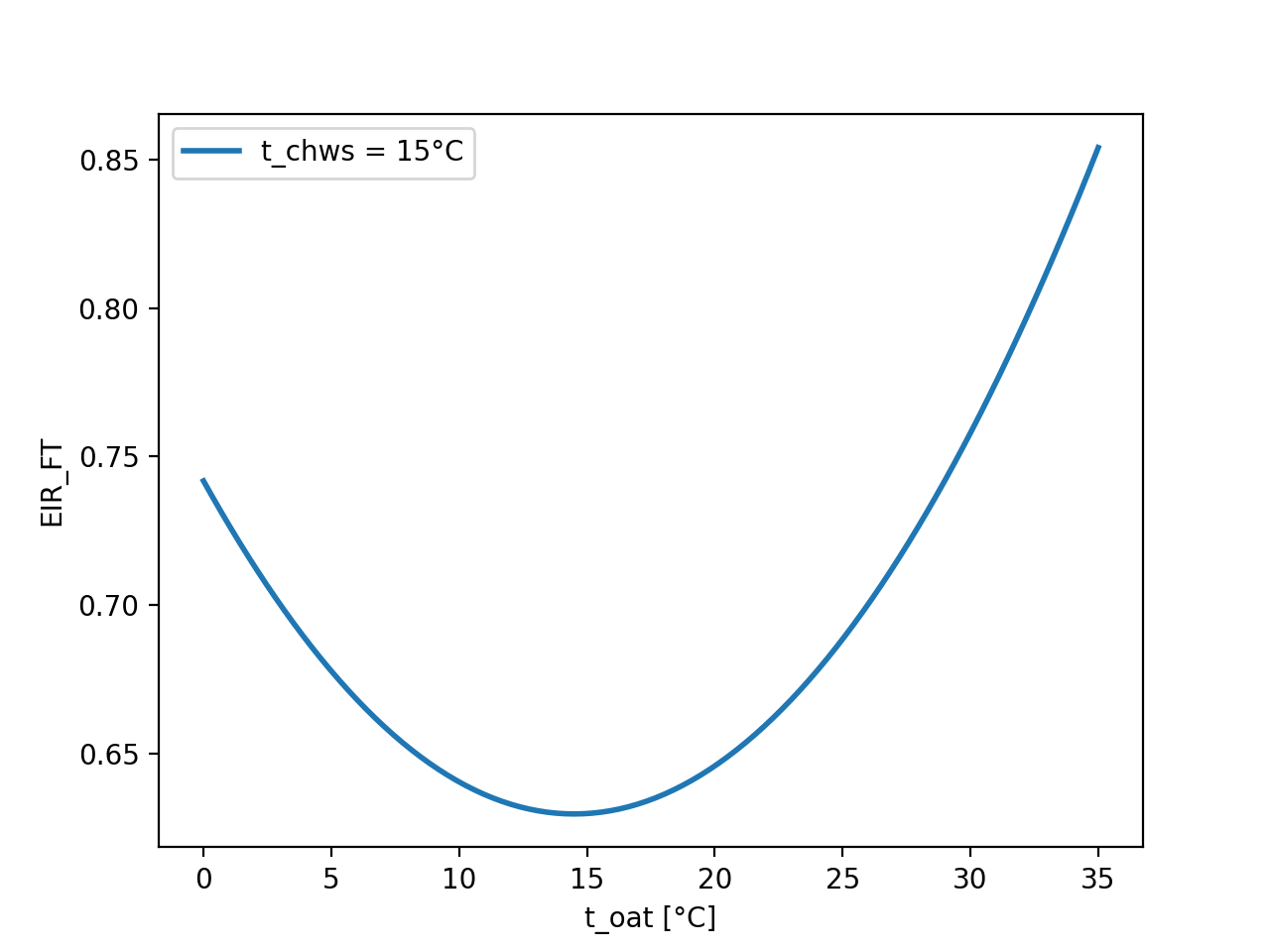Hello all,
I try to use the performance curves of the Chiller:Electric:EIR model to describe the operation of an air-cooled chiller in a non-linear optimization program.
However, I noticed that the EIR_FT (using the default values of https://www.comnet.org/index.php/382-chillers for an air-cooled scroll chiller rated at standard conditions) is increasing once the ambient temperature (t_oat) is below the chilled water supply temperature (t_chws) (see figure below with t_chws = 15°C). I was wondering whether this represents the real behaviour of a chiller or whether the EIR_FT curve is not applicable for t_oat below the t_chws, especially since I've seen other approaches assuming the EIR to descrease (or rather the COP to increase) for t_oat < t_chws. Because I'm using the curves for a chiller in an industrial cooling application, chilled water is required even for low ambient temperatures.

Related to the above, also CAP_FT reaches large values of about ~1.6 for the given application and low ambient conditions and I was wondering if this is still "realistic" or if in general there are limits for t_chws and t_oat using the EIR_FT and CAP_FT curves (other than specified operating conditions by a manufacturer)?
Thanks!




